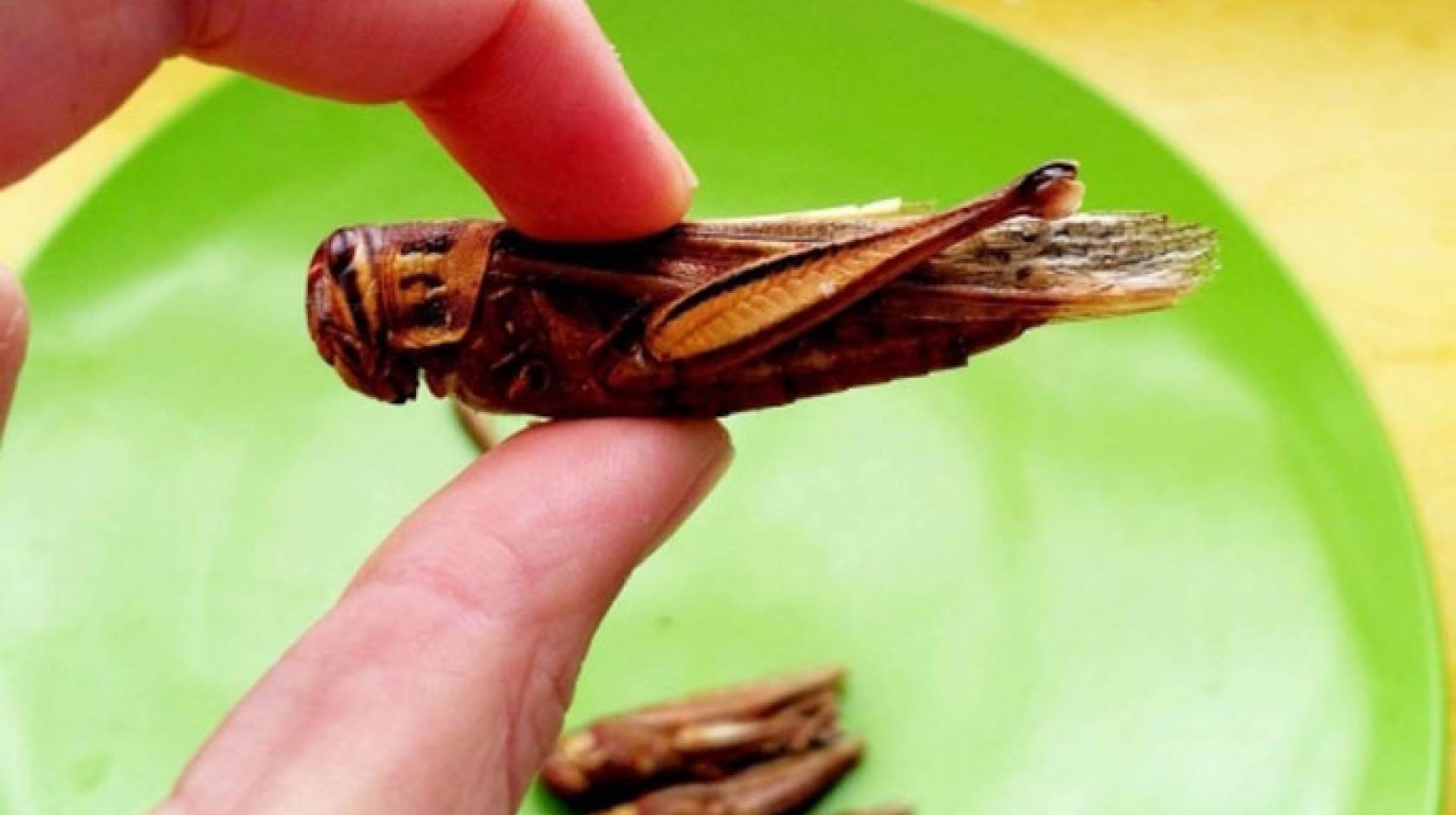Jim Logan, UC Santa Barbara

You might not have known, but a lot of people think you should be eating insects. Their arguments are legion: Edible bugs are better for the environment and can help slow climate change, they can alleviate malnutrition and ease food insecurity. Also, they’re delicious.

Credit: Sonia Fernandez
“June beetles are fantastic,” said MacKenzie Wade, a doctoral candidate in anthropology at UC Santa Barbara. “They truly taste like bacon.”
Wade, who farmed mealworms in her dorm room as an undergraduate at Kansas State University, is an unapologetic advocate for edible insects. Her interest in them, however, is far more than gustatory. Her research specializes in insects as food, and the cultural aversions to eating them.
That led her and Jeffrey Hoelle, an associate professor of anthropology and her graduate advisor, to do the first systematic review of research literature on edible insect production. “A review of edible insect industrialization: Scales of production and implications for sustainability,” in the journal Environmental Research Letters, challenges some of the assumptions about edible insects and their potential to combat climate change and inequality.
The researchers reviewed 66 articles from 2018, what they call “a watershed year in edible insect research.” They then analyzed several aspects of industrial insect farming, including microbiology, external production factors, product development, consumer acceptance, and the social and environmental dimensions of the industry.

Credit: Sonia Fernandez
Wade, the lead author, said nearly every paper was premised on the sustainability of insect farming, especially compared with industrialized animal production.
“But in the papers themselves,” she said, “there’s not a lot of grounded research being done on the actual sustainability impact of mass-rearing. That was one of the main disconnects that we saw.”
While edible insect farming offers a range of social and environmental benefits, Hoelle noted, scaling up production to support increased demand has the potential to undercut its potential for sustainability.
“When we looked at the publications, they’re all about industrialization,” he said. “It’s likely that industrial insects would be less impactful than industrial scale livestock. But still, it’s kind of getting channeled into this way of doing things where efficiency, profit and all that becomes more important than the social and environmental aspects.”
What’s clear, Wade said, is that edible insects have tremendous potential to feed a growing population in an increasingly damaged world. Some 2 billion people, mostly in the global South, already eat insects, many species of which contain as much protein as beef, more iron than spinach, as much vitamin B12 as salmon and all nine amino acids.
But producers of edible insects face an uphill climb in the global North, where a deep-seated revulsion of the practice is endemic. Wade, who maintains an Instagram page on eating insects, called this aversion a cultural issue.
Consider, she said, eating a hamburger, “the best you’ve ever had. And then all of a sudden you’re told that the burger is actually dog meat. That changes the taste of a burger, which I think is so interesting, because even though the taste actually hasn’t changed, you have this physical reaction to what you’ve just learned. So this knowledge that you’ve gained changes your reaction to this burger. It shows just how much culture and biology are linked.”
Getting people to eat insects might not be easy, but Wade is doing her part. With fellow bug enthusiast Aly Moore, she helped develop an educational program for the Girl Scouts that leads to a Cooking with Critters merit badge. She also does considerable public outreach and presentations.
And, of course, there was that period as an undergrad when she considered herself a mealworm farmer.
“I was definitely the coolest kid in the dorms, as you can imagine,” she said. “My roommate was so, so freaked out, but we had fun baking cookies with the mealworms, making all kinds of products. This was really when I was testing the waters of insect eating and I was pulling around all my friends to try things with me, and they got on board really fast. If you bring a bunch of mealworm cookies to a party and they get passed around, it starts a lot of conversations and people end up really loving them.”

